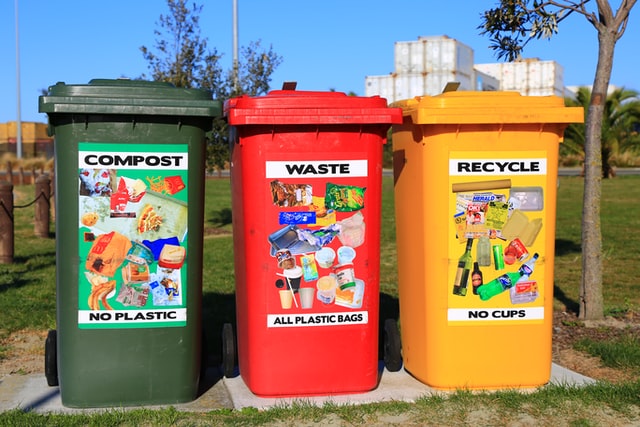Easy Ways to Help the Environment at Home

Some easy ways to help the environment at home are reducing energy usage and cutting down on waste. Consider carpooling and buying organic and locally grown foods. Use reusable bags and bring your own bag when shopping. Cook food in small, energy-efficient devices and avoid frying it. You can even reduce your electricity bill by turning off your thermostat when you are not home. These easy ways to help the environment at home will save you money in the long run and have a big impact on your wallet!

Composting
Composting is the process of turning organic material into usable soil amendment. By recycling organic material, you can reduce the amount of food waste you generate. Composting can also reduce your carbon footprint, which is the total amount of greenhouse gases that you emit from your activities. By composting, you can divert organic waste from landfills and reduce your water, fertilizer, and pesticide usage.
Most organic matter from farms and households ends up in landfills. In the U.S., one-third of all farmland is lost to erosion. Excess water results in depleted soil and can be detrimental to the environment. So, by composting organic waste, you help your local community and the planet. Not only do you save money on landfill fees, but you also contribute to the health of our community.
Buying from farmers markets
When purchasing from a farmers market, you can recycle. Bring back anything you don’t need, such as plastic planters, twist ties, rubber bands, and egg cartons. Then, wash and store your items properly. Also, don’t forget to wash and dry fruits and vegetables once you get home. Buying seasonal produce will help the environment and help support your local economy.
Farmers markets are a fantastic place to buy organic food and meet your local community. They sell a wide variety of local, sustainable products, including locally-made soap and beeswax candles. Not only will you be helping the environment, but you’ll be supporting small businesses and reducing your carbon footprint. Farmers markets are a great place to support local businesses, too! Consider buying local and organic produce instead of processed and packaged goods.
Bringing reusable bags from home
Bring your own reusable shopping bags to the grocery store instead of purchasing plastic or paper ones. You can use them for other tasks around your home, such as organizing extra items. Keep reusable bags in your purse or by the front door. They will prevent you from forgetting them when you are about to buy something, and they are also strong enough to carry your groceries. By using reusable bags, you are helping the environment and millions of animals.
Choose reusable bags that are easy to fold and lightweight. These bags will help you carry more items and will be more comfortable to use. Make sure that you wash them frequently so they won’t become dirty. If you are worried about cleaning them, choose reusable shopping bags with easy-to-wash materials. A reusable shopping bag will be more convenient and save you time in the long run. You will be contributing to a healthier and less cluttered planet.
Using a programmable thermostat
Using a programmable thermostat can dramatically reduce your home’s energy use. It can be programmed to be set at a certain temperature when you’re away or asleep and can save anywhere from twelve to fifteen percent on your power bill. Programmable thermostats also make it easy to make adjustments and eliminate the hassle of setting the temperature manually. These devices also save you money by reducing your carbon footprint as they are not affected by the time of day or the day of week.
If you live in an area where the temperature varies, you can use a programmable thermostat to keep your home at the right temperature. Unlike old-fashioned thermostats, which have to be adjusted every day, a programmable thermostat will keep your home at a constant temperature. This means you can save a significant amount of money each year. You will also spend less on your utility bills thanks to the lower energy bills.
Avoiding plastic straws
There are several ways to avoid plastic straws in your daily life. First, make a personal commitment to never use one. Encourage friends to join you and try to use reusable straws whenever you can. When you go out to eat, you can start a conversation about plastic straws and suggest restaurants change their protocol or leave an informational card when you pay your bill. If you can’t help yourself, consider donating your used straws to a local charity.
You can also buy straws that are made from other materials. Some straws made from bamboo, steel, and paper are compostable. Some straws are even made of actual straws. This is a simple way to make a big difference in the environment. Whether you use silicone or paper straws, making a conscious choice to stop using plastic straws is a positive step toward a future of cleaner water and cleaner planet.
Buying organic food
Organic farming has many benefits, but it is also expensive. Non-organic farming kills beneficial insects, butterflies, and birds. According to one study, 672 million birds are killed each year by large-scale use of pesticides. Similarly, excessive use of chemical fertilizers pollutes water supplies through runoff and seepage. In addition, organic farmers are more aware of the health effects of their practices.
In addition to purchasing organic produce, people can purchase local food, which saves on transportation costs. In fact, the average meal travels 1,500 miles. Because of this, produce is often picked unripe and is then gassed to make it more edible. Additionally, food is highly processed and stabilized for transport. Buying local food allows you to support local farmers, thereby preserving the flavour and the health of the environment.

Angela is a writer focused on the intersection of climate change and public health. Her work explores the impacts of environmental shifts on well-being, aiming to raise awareness and provide practical insights for a healthier, more sustainable future.
